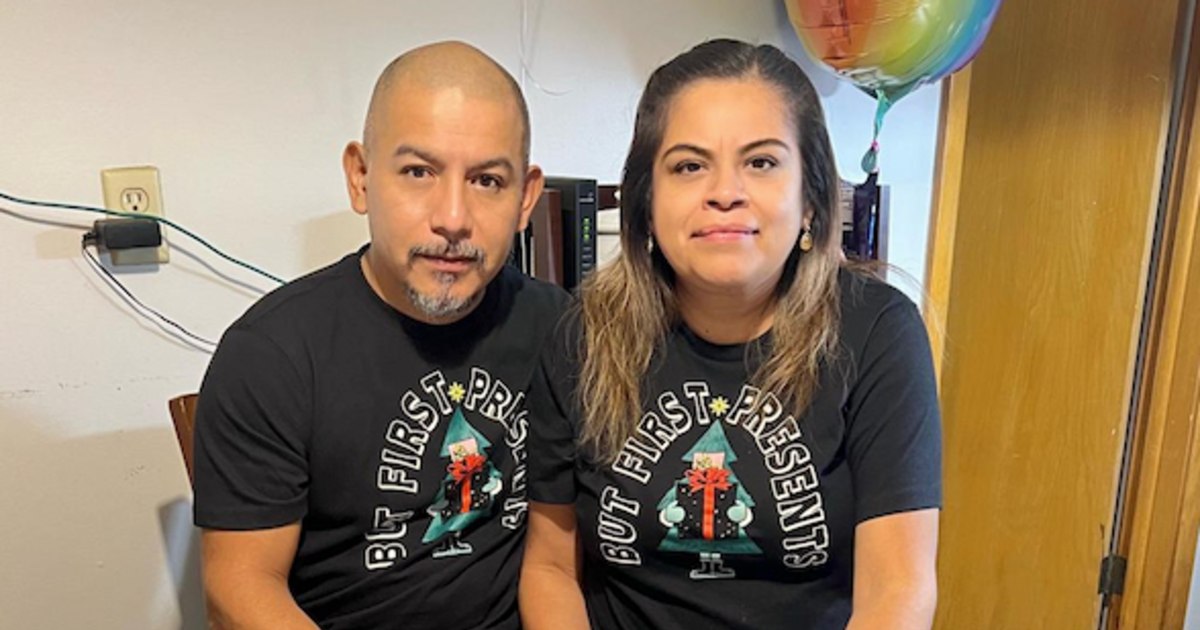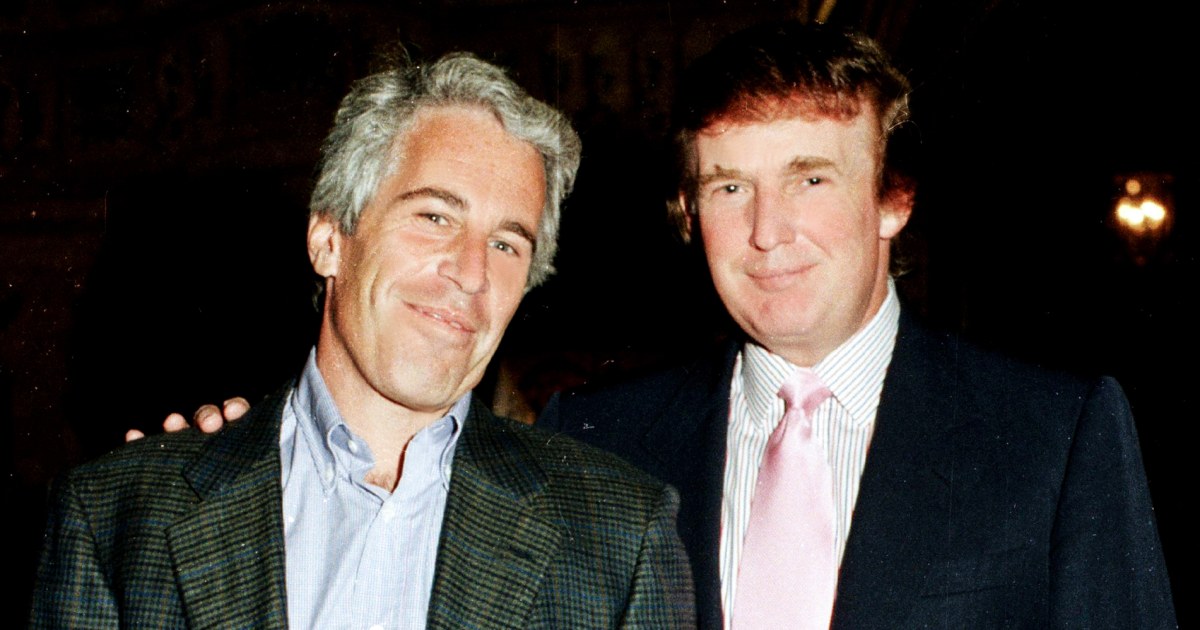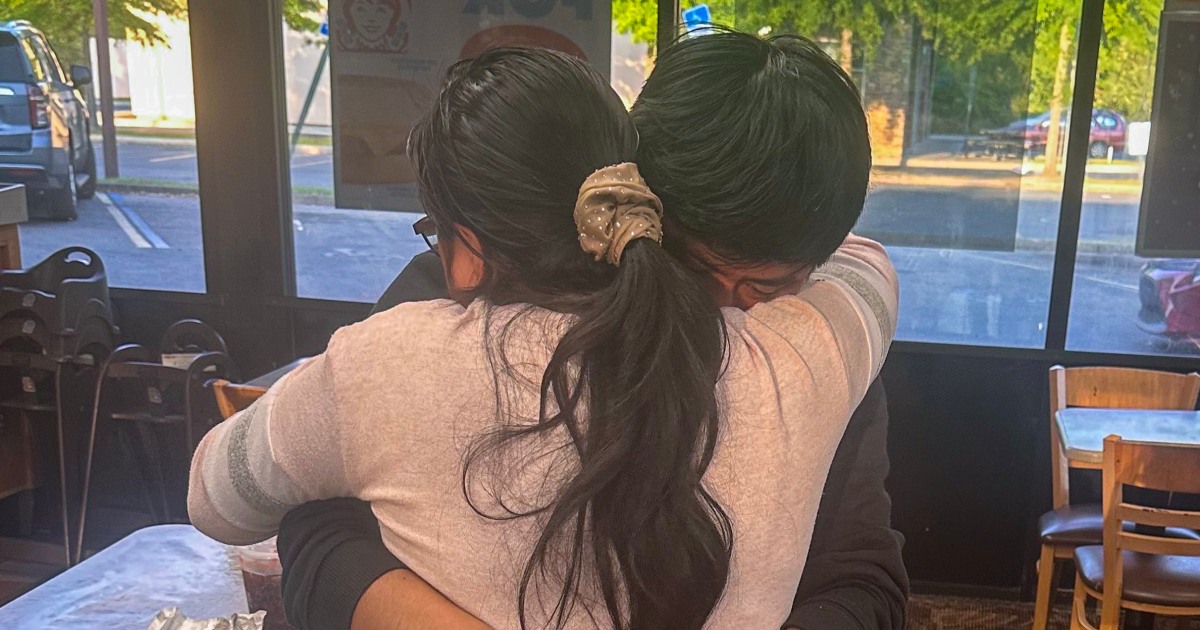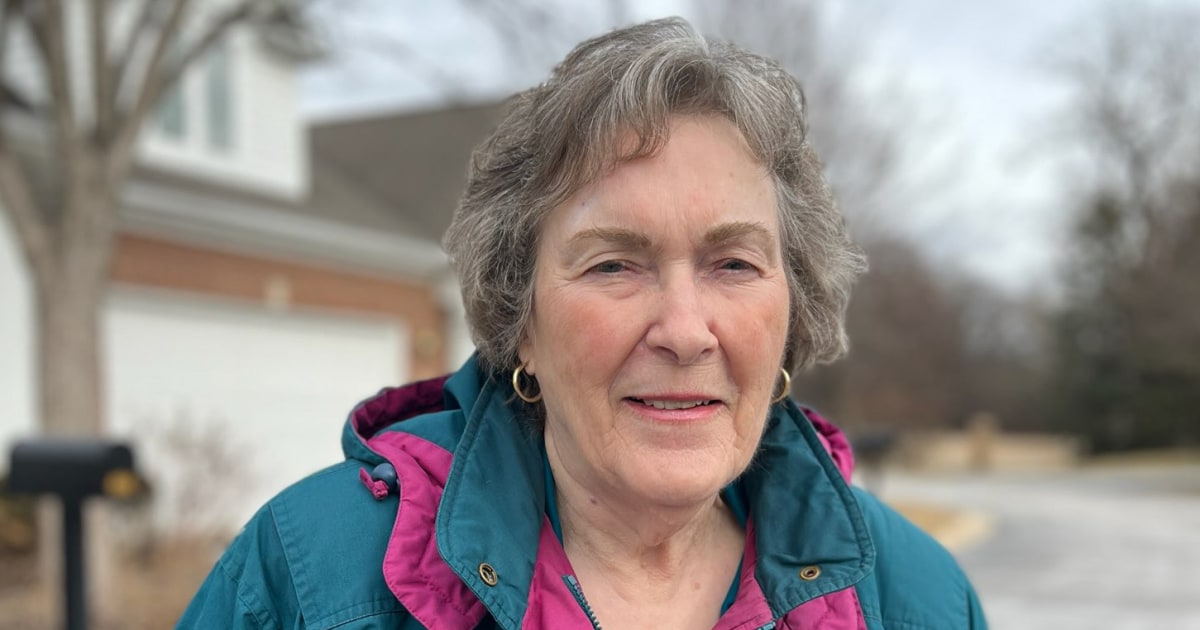Domingo Mendoza Méndez’s eyes fill with tears as he says he hasn’t seen his family since July 10, when he went to an appointment with U.S. Immigration and Customs Enforcement (ICE) and was detained.
“I’m in the process for a U visa and they detained me, but I don’t know why they’re detaining me. I’m following all their rules,” Mendoza Méndez, a 45-year-old Mexican immigrant, said in a video call with Noticias Telemundo from the Freeborn County Correctional Facility in Minnesota.
In 2013, Mendoza Méndez, who had crossed the border 13 years earlier, was the victim of a violent robbery in Minnesota, which was recorded and investigated by police. The type of assault he suffered is included in the U.S. Citizenship and Immigration Services (USCIS) list of crimes that qualify for a U visa, a measure designed for victims of criminal acts in the U.S. who agree to help authorities investigate the crime.
However, as part of the Trump administration’s mass deportation campaign, some immigrants who’ve applied and are in the process of waiting for a U visa have been detained.
“I feel sad. I’m trying to gather my strength, but there are so many things happening here. Many of us are having our rights violated,” said the married father of three children, adding that he’s been in the process of obtaining a visa since 2021.
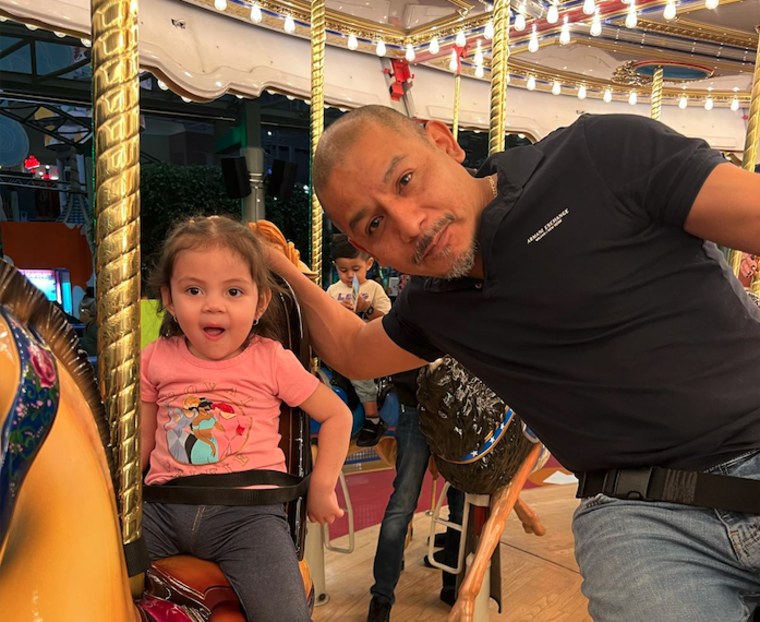
Magdalena Metelska, the immigration attorney handling Mendoza Méndez’s case, said that other administrations didn’t take coercive measures against victims applying for U visas, but that has changed with the second Trump administration.
Now, if someone has a visa pending and even been given a work permit notification, like Mendoza Méndez, “it doesn’t really matter because these people are also being arrested and detained,” she said.
In April, Jose Madrid-Leiva, a Guatemalan immigrant who was waiting for a U visa, was detained in Kansas City. That same month, Guatemalan immigrant Gerber Mazariegos Dávila, who was applying for a U visa, was detained by ICE agents in Atlanta. In June, Esvin Juárez and Rosmeri Miranda-López, a Guatemalan couple with four children whose U visa application had been approved were deported to their homeland.
A benefit and a law enforcement tool — with a big backlog
The U visa was created by Congress in 2000 through the Victims of Trafficking and Violence Protection Act (TVPA) and is reserved for victims of certain crimes who “have suffered physical or mental harm” and who cooperate with law enforcement or government officials “in the investigation or prosecution of criminal activity,” according to USCIS.
“The U visa is a humanitarian benefit, but it’s also a law enforcement tool,” explained Hannah Shapiro, supervising attorney at the Legal Aid Society, which provides legal help to low-income families and individuals. “It requires the individual to cooperate in an investigation or prosecution related to the visa-qualifying offenses, which can be recent or have occurred several years ago.”
She added the visa was designed to make communities safer by incentivizing undocumented survivors of domestic abuse and other crimes to contact police and cooperate in investigations, thus helping make abusers accountable.
The U visa’s benefits include the ability to live and work in the U.S. and a chance to apply for a green card in the future. However, as with other visas for victims of abuse and crime, such as the Special Immigrant Juvenile program, the U.S. government only grants 10,000 U visas per year, which has created a considerable backlog for applicants.
There are more than 300,000 people waiting, in addition to qualifying family members, Shapiro explained, and the process can take up to 15 or 20 years.
According to USCIS numbers, the government received 266,293 primary U visa applications from fiscal year 2017 through the second quarter of fiscal year 2025.
“This means that if all U visa applications were halted today, it would take more than 20 years to resolve the pending cases. Since fiscal year 2009, USCIS has seen a 2013% increase in pending cases,” USCIS said in a statement sent to Noticias Telemundo.
Since June 2021, USCIS has been granting “good faith determinations” — official documents that validate the legitimacy of the U visa application and protects applicants from deportation while giving them work authorization.
Recent changes, fewer protections
Immigration experts and attorneys say the Trump administration is now asserting that “good faith determinations” do not protect people from deportation, leading to detentions of U visa applicants.
“I always carried in my wallet the letter of good faith that ICE had approved for me, which states that I have the right to be in the United States without fear of deportation. But the agents told me they were no longer respecting that. And they took me away,” said Mendoza Méndez.
Matthew J. Tragesser, chief of USCIS’ Office of Public Affairs, said in a statement to Noticias Telemundo that “a good faith determination on a pending application for U nonimmigrant status does not protect a foreign national from immigration enforcement.”
Tragesser also stated that “the U visa program is being exploited by foreign scammers and criminals, their corrupt lawyers, and law enforcement officers,” though he did not provide specific figures or cases.
Last month, USCIS announced that five Louisiana men, including four active and retired law enforcement officers, had been charged with bribery, conspiracy to commit visa fraud and mail fraud following a federal investigation that uncovered a pattern of inconsistencies in U visa applications. According to the agency, the defendants filed false police reports so that foreign nationals who were supposedly victims of the thefts could apply for U visas.
A shift away from victims’ protections
Although the fundamental structure of the U visa program remains intact (since it was created by Congress, it can’t be unilaterally eliminated), several experts and applicants say its practical implementation has become significantly harder.
“Shortly after Trump returned to power, they repealed a memorandum that considered victim status a discretionary factor that, except in extenuating or more serious circumstances, should not be a priority for removal. This is even true if their case was pending and had not been approved,” Shapiro said.
The attorney refers to Memorandum 11005.4, which changed the agency’s approach to immigration enforcement related to U visa applicants. Among other things, this new directive eliminates proactive victim identification, so ICE officers are no longer required to look for clues or evidence suggesting a foreign national is a victim of a crime when making enforcement decisions.
“With the new Department of Homeland Security rules, these cases are being reopened. So people who were helping the police, who had suffered some type of crime, or were victims of a very serious crime are now in deportation proceedings,” immigration attorney Benjamín Osorio said.
One such case is that of Fredy Hernández Cedillos, a Salvadoran immigrant who has lived in the U.S. since 2009. He was injured during a violent robbery in Virginia in 2010 and has been waiting for a U visa since 2020.
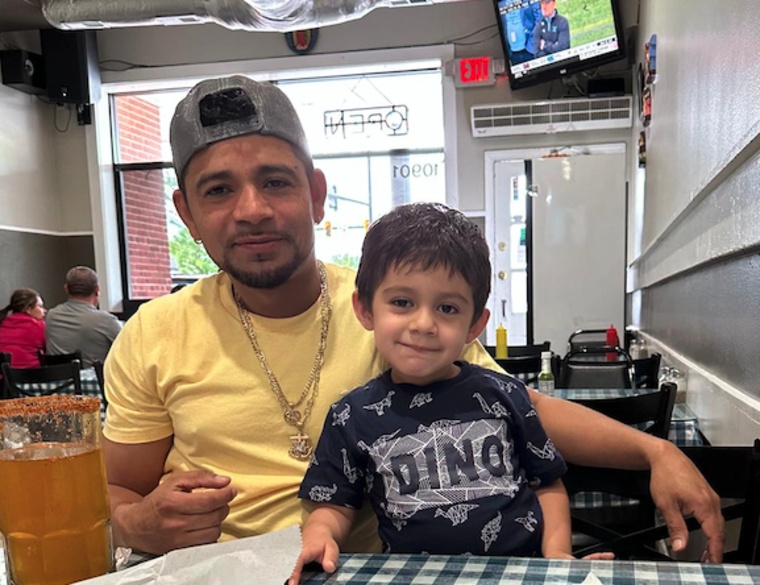
“My lawyer received a letter from DHS saying they’re going to reopen our case, even though we’ve already gone to court. So our fear is that we can’t return to our country because gangs are after us. And we don’t know if we’ll have to leave our children,” said Cedillos.
U.S. law allows migrants applying for this visa to continue the visa process in the countries to which they were deported. However, lawyers like Osorio warn of the difficulties involved in this process.
“Yes, they can continue their procedures. But the problem is that if the waiting list is more than 10 years long, people have to spend that time in the country to which they were deported, and they are often in danger there. Furthermore, if they have American children, they will suffer without their parents, because deportation affects the entire family,” Osorio said.
‘Harmed by these delays’
The prosecution of these cases made headlines in January, when a Michigan court ruled that a group of crime survivors applying for U visas could move forward with a lawsuit against the Department of Homeland Security for unjustifiable delays in receiving initial good faith determinations, which, among other things, has prevented them from accessing work permits.
“We have several clients who have waited nearly six years without any updates or news, not even an initial acknowledgment of the legitimacy of their case. The court ruled that our clients have been harmed by these delays,” Meredith Luneack, the plaintiffs’ attorney, said in a statement. This case is still being reviewed by the U.S. District Court for the Eastern District of Michigan.
The Trump administration has demanded a drastic increase in the immigrant detentions and deportations, with a daily quota of 3,000 arrests. Shapiro, along with other experts, says this pressure has resulted in hundreds of people being detained while attending their immigration court appearances.
“You want to do things right and work in this country, but what I see is that the government wants to remove as many people as possible. The fear is going to court and, once we’re there, they won’t let us out,” Cedillos said.
Mendoza Méndez remains detained as he battles in court to stay in the U.S. With a broken voice, he said he hasn’t lost hope of returning to his family in Minnesota. “I still have faith and I know we’ll be able to get through all of this,” he said.
An earlier version of this article was first published in Noticias Telemundo.

